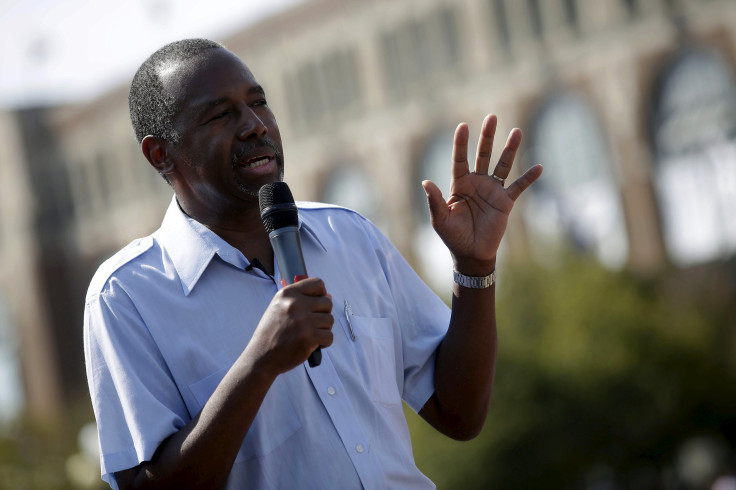Election 2016: Ben Carson Tied With Donald Trump In Iowa, Followed By Carly Fiorina In Third

The effect of the first Republican primary debates are still being felt in Iowa where for the first time since late July a Monmouth University poll puts retired neurosurgeon Ben Carson neck-and-neck with real estate mogul Donald Trump. The rise of Carson, and previously Trump, indicates Iowa voters aren't particularly keen on having a career politician as their next president.
Still, Carson's rise was perhaps more unexpected than Trump's, and shows a 15 percent bump from a month ago compared to just a 10 percent bump for Trump. Both candidates received 23 percent support from likely Republican Iowa caucusgoers. Just one other candidate broke double digits, former Hewlett-Packard executive Carly Fiorina with 10 percent. Notably, she's never held public office either.
"These results mark a significant shake-up in the leaderboard from Monmouth’s Iowa poll taken before the first debate,” said Patrick Murray, director of the independent Monmouth University Polling Institute in New Jersey. “Carson and, to a lesser extent, Fiorina have surged, while [Wisconsin Gov. Scott] Walker has faded into the background.”
The fall is particularly harsh for Walker. In July, he was the clear front-runner in the state with 22 percent of the likely vote, and was trailed by Trump at 13 percent. In August, Walker picked up only 7 percent of the vote. Walker has put a big emphasis on Iowa early in this primary season, developing a socially conservative message noticeably tailored for Iowa crowds though perhaps alienating in other key states.
On a national level, Trump is the clear No. 1 right now. He takes in an average of 25.7 percent of likely Republican primary voters, and Carson comes in second with 11 percent. Former Florida Gov. Jeb Bush, once seen as the almost inevitable winner of the Republican nomination, is in third with 9.7 percent.
The poll was conducted by telephone Aug. 27-30 among 405 voters likely to attend the presidential caucuses in February. The poll has a margin of error 4.9 percentage points.
© Copyright IBTimes 2024. All rights reserved.






















